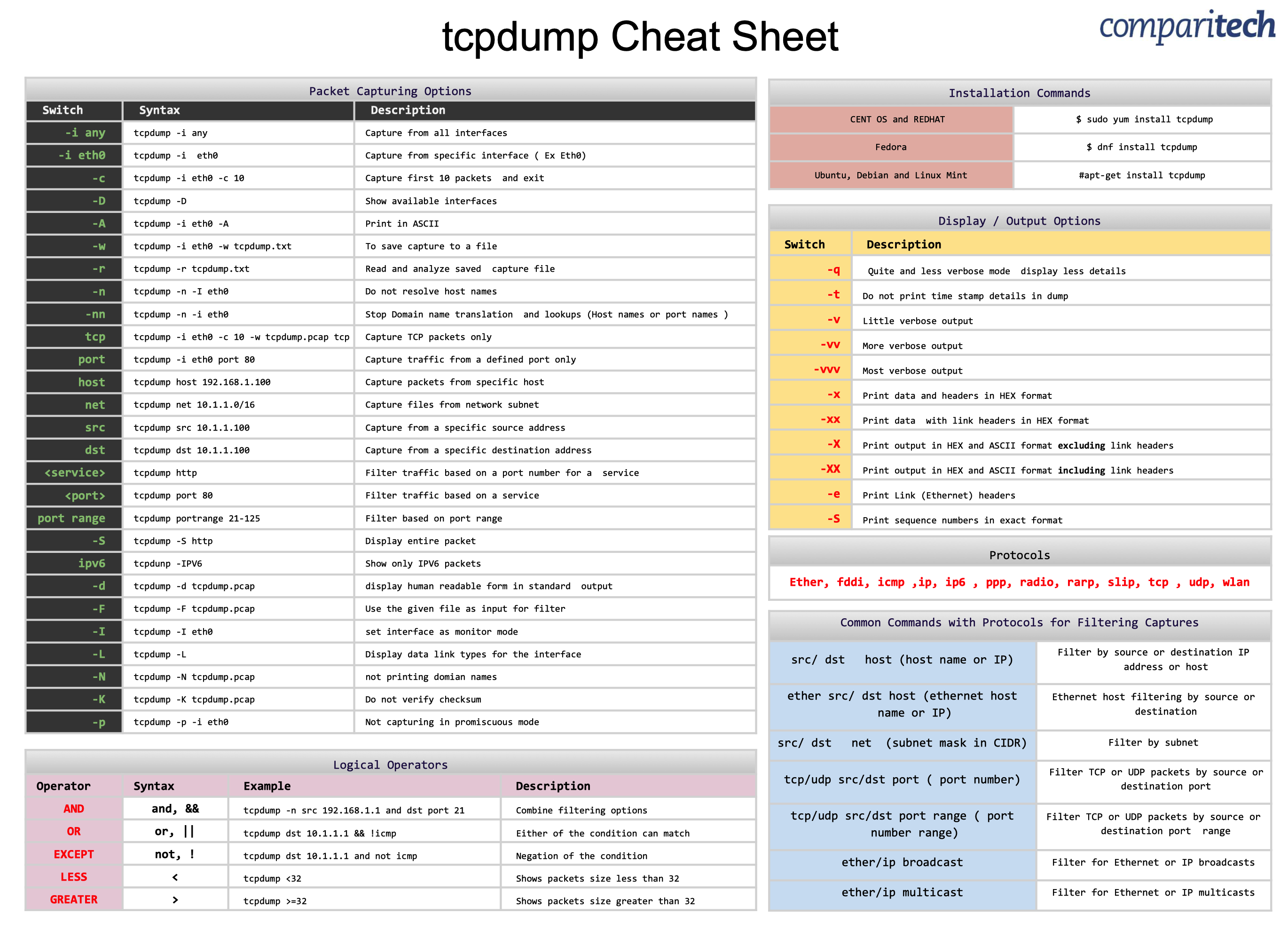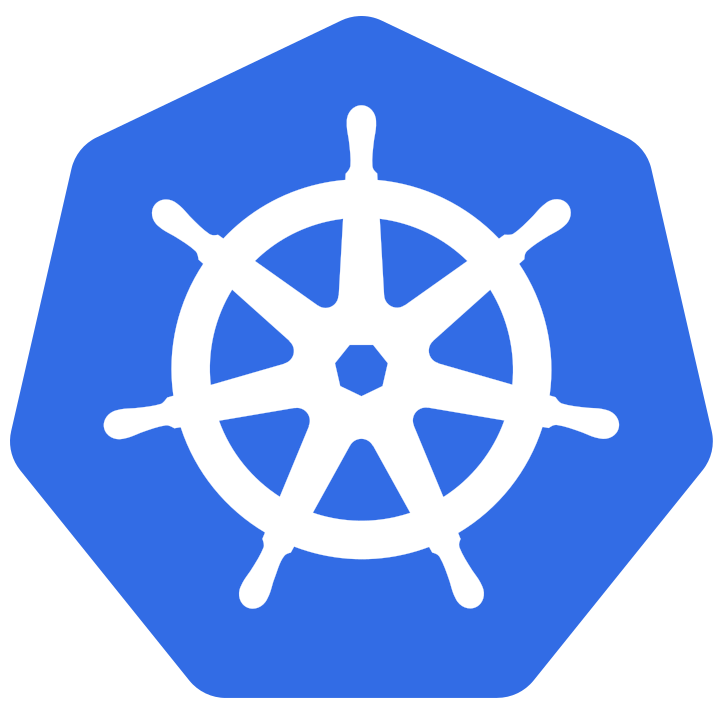
Packet Capturing Options
| Switch |
Syntax |
Description |
| -i any |
tcpdump -i any |
Capture from all interfaces |
| -i eth0 |
tcpdump -ieth0 |
Capture from specific interface ( Ex Eth0) |
| -c |
tcpdump -i eth0 -c 10 |
Capture first 10 packetsand exit |
| -D |
tcpdump -D |
Show available interfaces |
| -A |
tcpdump -i eth0 -A |
Print in ASCII |
| -w |
tcpdump -i eth0 -w tcpdump.txt |
To save capture to a file |
| -r |
tcpdump -r tcpdump.txt |
Read and analyze savedcapture file |
| -n |
tcpdump -n -I eth0 |
Do not resolve host names |
| -nn |
tcpdump -n -i eth0 |
Stop Domain name translationand lookups (Host names or port names ) |
| tcp |
tcpdump -i eth0 -c 10 -w tcpdump.pcap tcp |
Capture TCP packets only |
| port |
tcpdump -i eth0 port 80 |
Capture traffic from a defined port only |
| host |
tcpdump host 192.168.1.100 |
Capture packets from specific host |
| net |
tcpdump net 10.1.1.0/16 |
Capture files from network subnet |
| src |
tcpdump src 10.1.1.100 |
Capture from a specific source address |
| dst |
tcpdump dst 10.1.1.100 |
Capture from a specific destination address |
| service |
tcpdump http |
Filter traffic based on a port number for aservice |
| port |
tcpdump port 80 |
Filter traffic based on a service |
| port range |
tcpdump portrange 21-125 |
Filter based on port range |
| -S |
tcpdump -S http |
Display entire packet |
| ipv6 |
tcpdunp -IPV6 |
Show only IPV6 packets |
| -d |
tcpdump -d tcpdump.pcap |
display human readable form in standardoutput |
| -F |
tcpdump -F tcpdump.pcap |
Use the given file as input for filter |
| -I |
tcpdump -I eth0 |
set interface as monitor mode |
| -L |
tcpdump -L |
Display data link types for the interface |
| -N |
tcpdump -N tcpdump.pcap |
not printing domian names |
| -K |
tcpdump -K tcpdump.pcap |
Do not verify checksum |
| -p |
tcpdump -p -i eth0 |
Not capturing in promiscuous mode |
Logical Operators
| Operator |
Syntax |
Example |
Description |
| AND |
and, && |
tcpdump -n src 192.168.1.1 and dst port 21 |
Combine filtering options |
| OR |
or, || |
tcpdump dst 10.1.1.1 && !icmp |
Either of the condition can match |
| EXCEPT |
not, ! |
tcpdump dst 10.1.1.1 and not icmp |
Negation of the condition |
| LESS |
< |
tcpdump <32 |
Shows packets size less than 32 |
| GREATER |
> |
tcpdump >=32 |
Shows packets size greater than 32 |
Installation Commands
| Linux Distro |
Command |
| CENT OS and REDHAT |
$ sudo yum install tcpdump |
| Fedora |
$ dnf install tcpdump |
| Ubuntu, Debian and Linux Mint |
$ apt-get install tcpdump |
Display / Output Options
| Switch |
Description |
| -q |
Quite and less verbose modedisplay less details |
| -t |
Do not print time stamp details in dump |
| -v |
Little verbose output |
| -vv |
More verbose output |
| -vvv |
Most verbose output |
| -x |
Print data and headers in HEX format |
| -xx |
Print datawith link headers in HEX format |
| -X |
Print output in HEX and ASCII format excluding link headers |
| -XX |
Print output in HEX and ASCII format including link headers |
| -e |
Print Link (Ethernet) headers |
| -S |
Print sequence numbers in exact format |
Protocols
Ether, fddi, icmp ,ip, ip6 , ppp, radio, rarp, slip, tcp , udp, wlan
Common Commands with Protocols for Filtering Captures
| Options |
Description |
| src/ dsthost (host name or IP) |
Filter by source or destination IP address or host |
| ether src/ dst host (ethernet host name or IP) |
Ethernet host filtering by source or destination |
| src/ dstnet(subnet mask in CIDR) |
Filter by subnet |
| tcp/udp src/dst port ( port number) |
Filter TCP or UDP packets by source or destination port |
| tcp/udp src/dst port range ( port number range) |
Filter TCP or UDP packets by source or destination port range |
| ether/ip broadcast |
Filter for Ethernet or IP broadcasts |
| ether/ip multicast |
Filter for Ethernet or IP multicasts |





